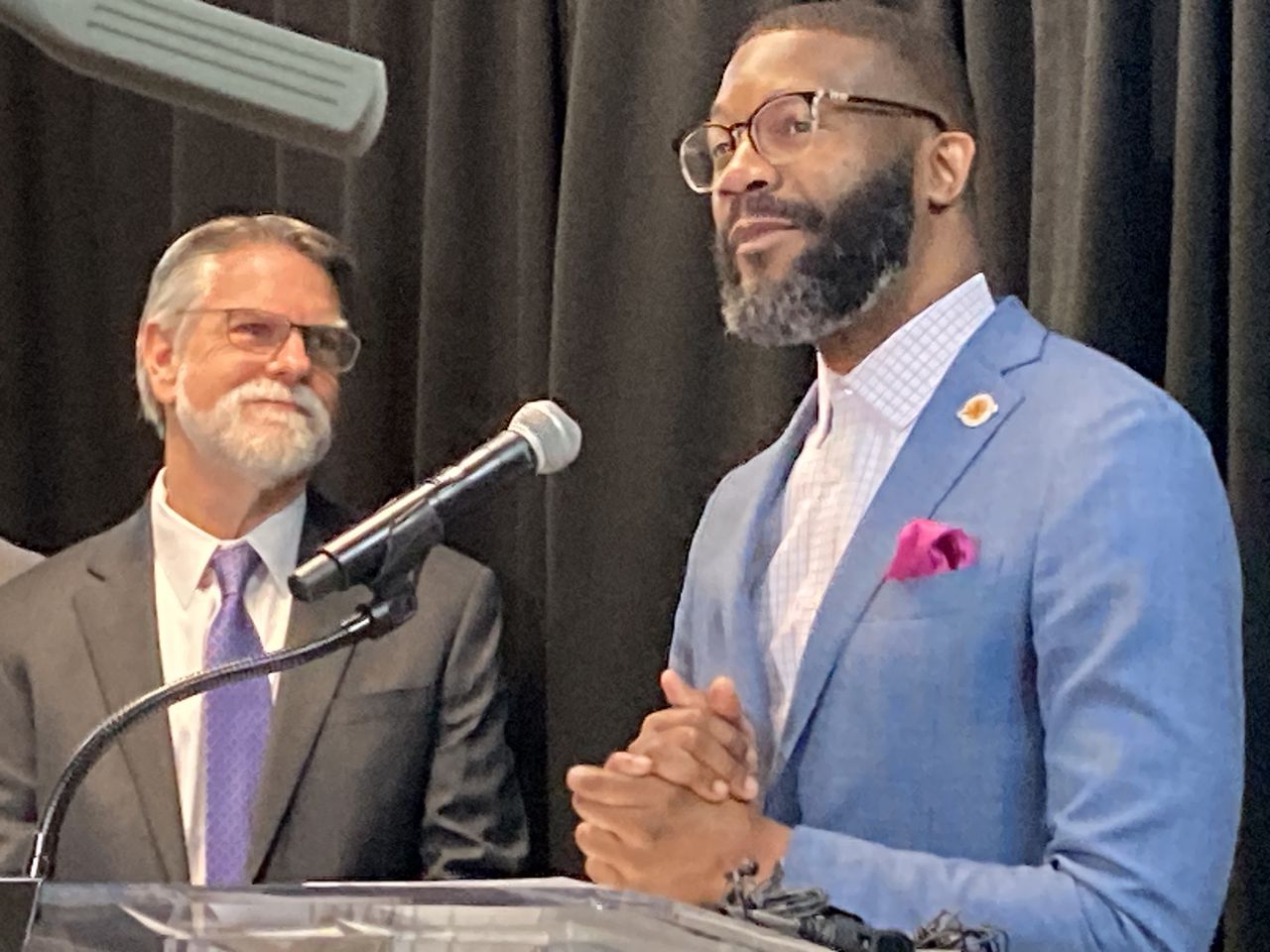Birmingham launches program to reduce violence among gunshot survivors
A program that matches gunshot victims with specially trained workers in the hospital has launched as a partnership between UAB and the City of Birmingham in an effort to break the cycle of violence.
“We hope this will provide a way to potentially break the cycle of injury,” said Dr. Jeffrey Kerby, director of the division of trauma and acute care surgery at UAB Hospital, during the official kickoff announcement on Wednesday.
Rates of gun violence have gone up in Birmingham and around the country in recent years and spiked during the pandemic. Kerby said hospital staff treated 1,300 people with gunshot wounds last year, a four-fold increase since 2010. Research on survivors of gun violence found that they often get shot again, often fatally, Kerby said.
Seven people recovering from gunshot wounds at UAB have already enrolled in the program, which offers help with housing, education, employment and mental health care, according to a violence intervention specialist. The program has been in the works for about five years, after a community health assessment identified gun violence as a leading public health issue in Birmingham, said Jefferson County Health Officer Dr. Mark Wilson on Wednesday.
Leaders of the City of Birmingham have committed $2.1 million to the program, which will serve patients between the ages of 19 and 39. The Jefferson County Health Department also provided a $1.1 million grant to the Offender Alumni Association, a non-profit that works on issues related to violence and incarceration. The Offender Alumni Association will provide staff for the program, which will launch with a one-year pilot.
“Violence never has a winner, and it never affects just one person,” said Deborah Daniels, executive director and cofounder of the Offender Alumni Association. “It destroys families and communities.”
Violence intervention specialists will work with gun violence survivors who choose to participate in the program. They can offer services such as education and training, along with more immediate needs such as safe housing for people who might face more violence if they return to the community where they were shot.
In addition to protecting victims from additional violence, the services could cut down on the retaliation that often happens after a violent crime.
Birmingham Mayor Randall Woodfin said retaliation is at an all-time high and is driving much of the record-breaking violence the city has experienced. City leaders have invested $6 million in recent years to community programs to prevent violence.
“What we have so far is, I’m afraid, just a drop in the bucket compared to what our community needs to address this extremely complex and stubborn problem,” Wilson said.
Public health and community leaders began looking at ways to address gun violence in 2018, Wilson said. The pandemic slowed efforts to implement violence intervention strategies, which are designed to address some of the underlying issues behind shootings.
“Life is never quite the same after a gun violence episode in someone’s life,” said Carmone Owens, a supervisor in the violence intervention program. “Ä lot of different pieces have to be put back together.”
Among the earliest participants, one has already begun an educational program to help with job prospects once he has recovered from gunshot wounds that could leave him too disabled to continue his previous career, Daniels said. The Offender Alumni Association has partners willing to employ participants in the program, which will help provide additional economic stability, Daniels said.
“We ask them what are the primary needs that they have,” Owens said. “They tell us what they need, and we try to get them where they want to go.”
Woodfin said city leaders are looking for more ways to address gun violence outside of simply relying on law enforcement. This project will show that other community groups can address some underlying issues. Researchers will measure the success of the program, which has reduced reinjury in Chicago, according to a press release.
“This is life changing,” Woodfin said. “This program is literally saving lives.”
Daniels said she has 14 grandchildren who inspire her to help the community. Gun injuries have become the leading cause of death nationwide for people between the ages of 1 and 25 years old.
“I want to see gun violence go down,” Daniels said. “My desire, my passion isn’t just about my kids. It’s about all of our kids.”
